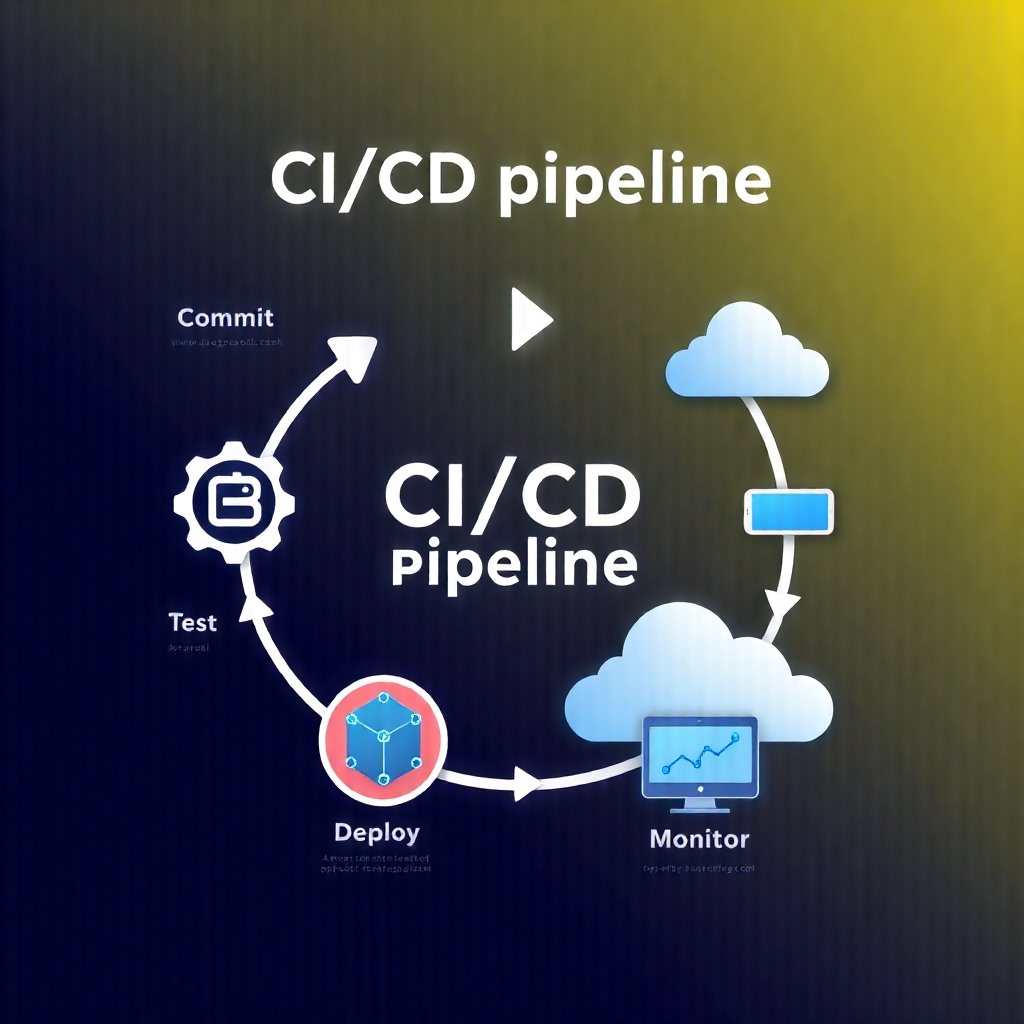🚀 What is CI/CD?
CI/CD stands for:
- Continuous Integration (CI) – Automatically building and testing code whenever developers make changes.
- Continuous Deployment/Delivery (CD) – Automatically delivering that code to staging or production environments.
Together, CI/CD helps development teams release software faster, safer, and more frequently, with less manual intervention.
🧱 The Problem Before CI/CD
Before CI/CD, teams often ran into:
- Long release cycles
- “It works on my machine” issues
- Manual deployments with frequent human errors
- Testing as an afterthought
CI/CD fixes this by introducing automation and consistency into the development lifecycle.
🔄 CI/CD Pipeline Explained (Step-by-Step)
Let’s break down a basic CI/CD workflow:
- Developer pushes code to GitHub/GitLab
- CI server (like Jenkins or GitHub Actions) is triggered
- Build & test the code automatically
- If tests pass, code is packaged (Docker, ZIP, etc.)
- CD system deploys it to staging or production
It’s like a smart assembly line for your code.
🛠️ Tools You Can Use
Here’s a list of popular tools for each stage of your CI/CD pipeline:
| Stage | Tools |
|---|---|
| Version Control | Git, GitHub, GitLab, Bitbucket |
| CI/CD Servers | Jenkins, GitHub Actions, CircleCI |
| Containers | Docker, Podman |
| Orchestration | Kubernetes, ArgoCD |
| IaC & Deploy | Terraform, Ansible, Helm |
🧪 Example: CI/CD with GitHub Actions (Quick Start)
Here’s how a simple CI pipeline might look in a .github/workflows/main.yml file:
yamlCopyEditname: CI Pipeline
on:
push:
branches: [ main ]
jobs:
build:
runs-on: ubuntu-latest
steps:
- uses: actions/checkout@v2
- name: Set up Node.js
uses: actions/setup-node@v2
with:
node-version: '18'
- run: npm install
- run: npm test
This example:
- Triggers on every push to
main - Installs dependencies
- Runs your tests
Boom—basic CI in under 20 lines!
⚙️ What About CD?
CD (Continuous Deployment) can be set up to:
- Deploy to Heroku, AWS, Netlify, Kubernetes, etc.
- Run post-deployment tests
- Roll back automatically if something breaks
You can configure this as another step in your pipeline—or use tools like ArgoCD, Flux, or Octopus Deploy.
📈 Why CI/CD Matters
✅ Faster releases
✅ Early bug detection
✅ Happier developers
✅ More reliable production environments
✅ Less burnout for operations teams
It’s not just about tools—it’s about changing how you deliver value.
💡 Pro Tips to Succeed with CI/CD
- Start small: Automate testing before deployment.
- Use feature flags: Safely roll out features.
- Keep pipelines fast: Slow builds = frustrated teams.
- Monitor everything: Set up alerts for failed deployments.
🧠 Final Thoughts
CI/CD isn’t a luxury—it’s the backbone of modern software delivery. Whether you’re a solo developer or part of a large team, setting up automated pipelines will help you ship better code, faster.
Don’t wait until your project is “big enough” for CI/CD. Start now, and grow with it.

